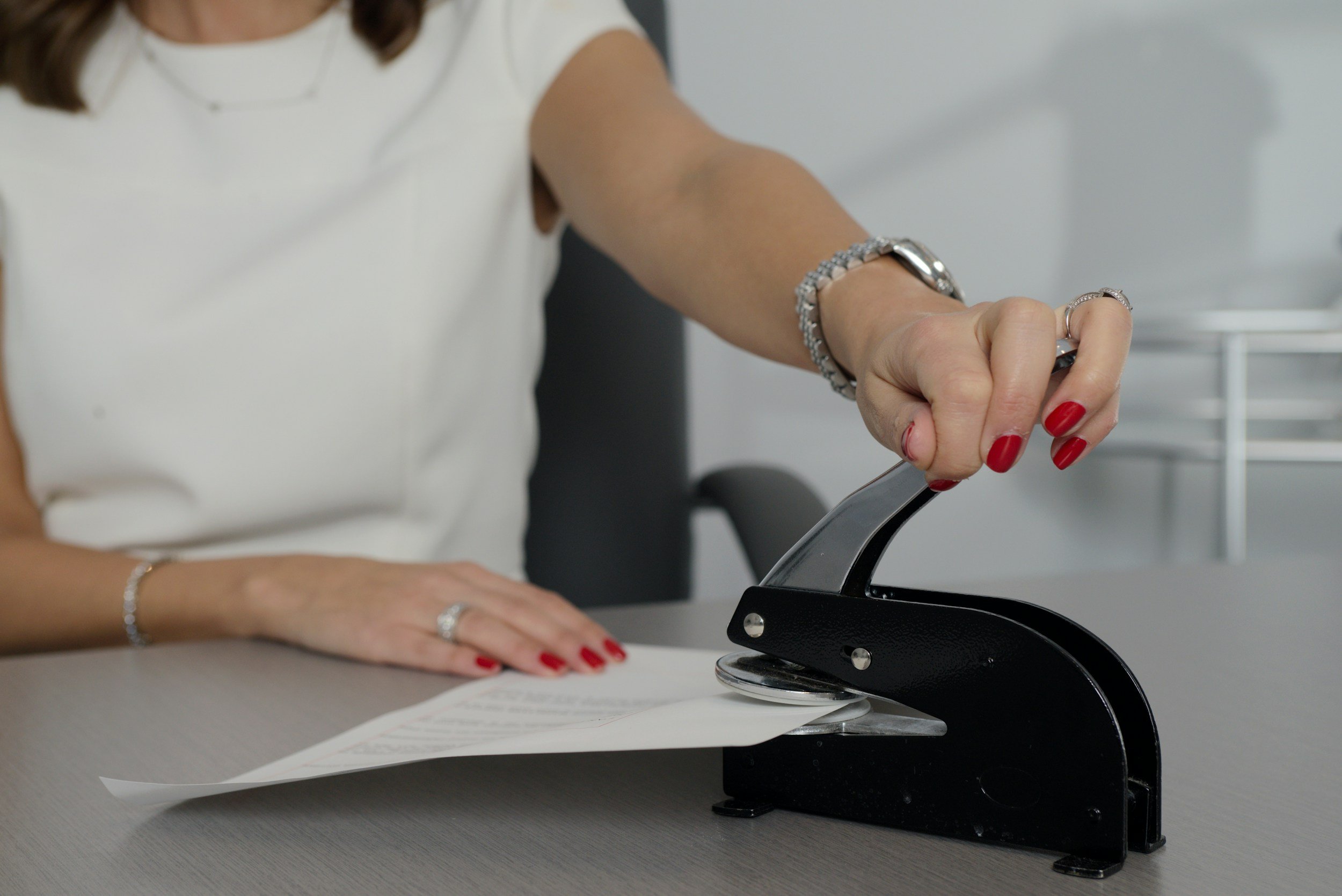Meyers Mobile Notary Services
Our Services
Mobile Notary Notary Services
Starting at $74.99
Meyers Mobile Notary Services offers reliable, professional notary public services for individuals and businesses in the local community. Whether you need to notarize documents like contracts, affidavits, or power of attorney forms, we provide quick, efficient, and confidential assistance. With flexible hours and competitive rates, Meyers Mobile Notary Services is your trusted partner for all your notarization needs. Conveniently located in 08075 and ready to serve you in person or through mobile notary services.
In New Jersey, a notary public has the authority to perform various duties related to the witnessing and authentication of documents. However, a notary's role is limited to specific actions and types of documents. Here’s a list of what a New Jersey notary public can sign and the duties they can perform.
1. Oaths and Affirmations
A notary can administer oaths and affirmations to individuals. This is often required for sworn statements or affidavits.
2. Acknowledgments
A notary can acknowledge a person’s signature on a document. An acknowledgment is a declaration made before a notary that the person signing the document is doing so voluntarily and with full understanding of its contents.
Common documents that may require acknowledgment include deeds, contracts, and powers of attorney.
3. Jurats (Certifications of Oaths)
A notary can witness the signing of a document and verify that the person signing has taken an oath or affirmation regarding the truth of the contents.
This typically applies to affidavits, depositions, or sworn statements.
4. Certified Copies
In some cases, a notary public in New Jersey can certify a copy of a document. However, this is limited to copies of original documents that the notary has personally witnessed or notarized. A notary cannot certify copies of vital records (like birth certificates) unless they have been specifically authorized by law to do so.
5. Protests of Notes
A notary in New Jersey can issue a protest in cases involving promissory notes or other negotiable instruments if they are not paid according to their terms. This is used in financial or legal disputes to record non-payment.
6. Signature Witnessing
A notary can witness the signing of a document and verify that the signers are who they claim to be. This is often done in cases where documents are being executed in the presence of a notary, such as contracts, powers of attorney, and real estate documents.
7. Affidavits and Other Legal Documents
A notary may notarize affidavits and other legal documents that require a sworn statement under oath or affirmation.
Types of Documents a New Jersey Notary Cannot Sign or Perform:
Non-legal documents: A notary cannot offer legal advice or prepare legal documents unless they are also a licensed attorney.
Vital records: A notary cannot notarize or certify copies of vital records like birth certificates, marriage licenses, or death certificates unless specifically authorized by law.
Non-notarizable documents: Some documents, such as wills (except for a self-proving will), may not need or require notarization in New Jersey, though notarization can often be requested.
General Rules for Notarization in New Jersey:
The person appearing before the notary must be physically present and provide valid identification to verify their identity.
The document being notarized must be complete and signed in the notary’s presence.
In summary, a notary in New Jersey can sign documents related to oaths, acknowledgments, and jurats, and can perform various other tasks like certifying documents and protesting notes. However, the notary cannot engage in the unauthorized practice of law, such as drafting or giving legal advice, and has limitations on certifying certain documents.



